-
Worker’s Compensation: Why it is Important and How it works?
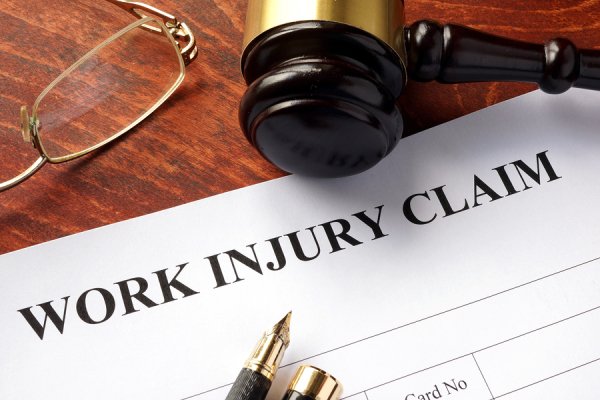
There’s a good chance that your worker’s compensation policy is the policy you think the least about, but that doesn’t mean it’s not important. Because your employer has the legal responsibility to make sure that you, as their employee, are safe in their workplace, worker’s compensation works in your favor to make sure you are compensated and receive the appropriate medical care, rehabilitation, and any lost wages because of the injury. While nobody wants this to happen, accidents can happen, which is why you need to be up to speed on the basics of worker’s compensation and how it functions. Not sure where to begin? Jack J. Schmerling is here to bring you in on the know so you can be better prepared if the situation ever arises.
The Importance of Understanding Worker’s Compensation
First and foremost, it’s the law: many states require that you have worker’s compensation. This also applies even if you have just one employee; to comply with the law, worker’s compensation must be carried. However, carrying worker’s compensation shouldn’t be seen as a burden: it’s what provides your coverage if you’re eligible. In the case of an injury, you will be referred to an approved healthcare, who will fill out all necessary paperwork in order to file the claim. Once you receive compensation, you can have prescriptions filled at an approved pharmacy. It’s important that the medical report is sent to all relevant parties, such as the employer, insurer, etc. The case will be investigated and documented, and if you are eligible for benefits, you’ll receive payments.When it comes to premiums, the National Council on Compensation Insurance, as well as the state’s Compensation Insurance Rating Board determine what your premiums will be. Your payroll and other costs will be taken into consideration, as well as other factors such as your company’s claims history.
Throughout the entire procedure, it is vital that you, as an employee, have a full understanding of your benefits and what your employer’s responsibilities are, so that you receive the maximum benefits and compensation you deserve. For example, if you suffer an injury, your claim is filed with the insurance company, which will cover your medical/disability benefits. Barring a few limited categories, if your employer doesn’t have worker’s compensation insurance, they’re subject to fines, criminal prosecution, and civil liability. Fully understanding the duties required and benefits you can receive is vital in protecting you to the full extent of the law.
Making Sure You’re Properly Compensated
Do you feel you haven’t received proper compensation from your employer? Unsure how to proceed with worker’s compensation? Jack J. Schmerling, Attorney at Law has been defending the Greater Baltimore Metro Area, offering full and transparent assistance for all your worker’s compensation rights. For a free consultation in Glen Burnie, call us today at (410) 988-4956
-
How Long Will My Disability Benefits Last?
Once your lawyer in Baltimore helps you secure your disability benefits , you should continue to receive them for as long as you meet the eligibility criteria. There are a few things that can cause your benefits to be terminated. First, know that while on disability, you’re responsible for promptly reporting whether your medical condition improves or whether you return to work. If your health improves to the point at which the Social Security Administration (SSA) no longer considers you to be disabled, then your benefits will be terminated. The SSA will periodically review your case to assess whether you are still disabled.
It’s possible to return to work without automatically forfeiting your disability benefits. The SSA refers to this as a “work incentive.” It’s designed to encourage benefit recipients to test their ability to work, while still having the safety net of benefits. If you are able to return to a level of work that gives you substantial earnings, then you’ll no longer receive benefits. How the SSA defines “substantial earnings” is subject to change over time—you can consult your lawyer about the current regulations.
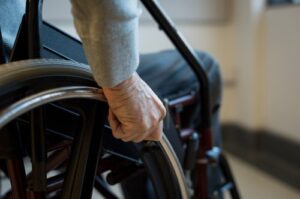
-
Involved in a Wreck? Don’t Ignore These Delayed Symptoms
Most car accident injuries are immediately apparent, such as lacerations and broken bones. Others may not result in symptoms until hours, days, or even weeks after the wreck. Your injury attorney in Baltimore needs to know about these late-appearing injuries so that he or she can provide effective legal advocacy services, and secure maximum compensation on your behalf.
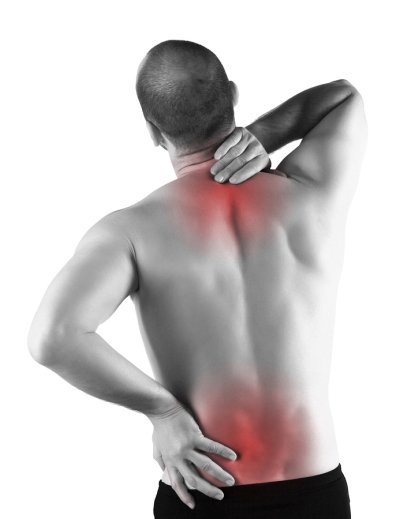
Back Pain
Low back pain is particularly common among survivors of rear-end and side-impact car accidents. It might not develop right away, and it can become worse without treatment. It’s possible for the pain to be caused by damaged vertebrae, ligaments, or nerves, so talk to a doctor about your symptoms promptly.
Abdominal Pain
Pain or swelling of the abdominal area should receive emergency medical attention. This could indicate severe internal bleeding that may become life-threatening. Other accompanying symptoms may include extensive bruising on the area, dizziness, and fainting.
Neck Pain and Stiffness
Neck pain and stiffness, loss of range of motion, and headaches can indicate whiplash—a common late-appearing injury of rear-end car accident survivors. Without early treatment, it’s possible for whiplash to cause chronic symptoms. Other accompanying symptoms of whiplash may include blurry vision, tinnitus, dizziness, and muscle spasms, along with pain, numbness, and tingling that extends down the arms. Treating whiplash may involve multiple sessions with a chiropractor and/or a physical therapist. Your attorney can help you secure compensation for these medical expenses.
Headaches and Impaired Cognition
Never ignore any signs of possible head trauma or neurological impairment after a car wreck, such as headaches, memory loss, difficulty concentrating, and impaired reasoning. Traumatic brain injuries (TBIs) can develop even if your head wasn’t struck by something. The force of the impact can cause your brain to move back and forth within your skull, causing severe tissue damage. Other signs of brain trauma can include convulsions, nausea, vomiting, confusion, depression, irritability, and loss of balance. Some patients go on to suffer from long-term or permanent changes in personality and functional abilities.
-
Will Noah’s Law Affect You?
DUI laws often change, but a lawyer in Baltimore can inform you of any legal changes that could affect the outcome of your drunk driving case —such as Noah’s Law. As this featured video explains, Noah’s Law was named in honor of police officer Noah Leotta, who was struck and killed by an impaired driver in 2015. Noah’s Law went into effect in October 2016.
The law sets stricter penalties for individuals convicted of DUI. For a first-time offense, they are required to use an ignition interlock device for six months. A second offense results in one year, and three offenses or more result in three years. Noah’s Law also increases the amount of time drivers will have their licenses suspended for impaired driving.
-
I Was Injured During My Commute. Can I Get Workers’ Comp?
Workers’ comp law in Baltimore allows injured employees access to financial benefits if they are hurt while on the job, accrue medical expenses, and lose wages. It does have some limitations, however. Employees are only covered under workers’ comp if their injury or illness was directly related to the workplace or duties of the job. This means that most employees who are injured during their daily commute to work aren’t eligible for workers’ compensation. There are exceptions to this, however, so it’s in your best interests to consult an attorney.
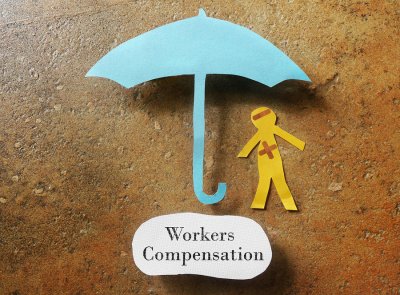
Going and Coming Rule
Maryland’s “going and coming” rule limits workers’ comp eligibility. It states that workers cannot qualify for benefits if they were injured while going to or coming from work. This rule presumes that you are responsible for ensuring your own safety while traveling. However, there are a few exceptions.
Premises Exception
One notable example of the premises exception is a Maryland woman who won her claim for benefits after she was injured in her employer’s parking lot, while walking to the employee entrance. The court determined that, because the employee was on employer property, she was covered, even though she hadn’t started work yet.
Proximity Exception
Even if you were injured off-site, next to your employer’s property, you may still be eligible for benefits under the proximity exception. Two elements must be present to qualify:
- The off-site area contains a special hazard (such as icy sidewalks).
- The route from the off-site location to the employer’s property is closely associated with the employer.
The second requirement can be tricky to meet. It’s fulfilled when an employer directs employees to use that off-site location, or when the employer knows employees use it, and acquiesce to it. For example, Gerald is a fictitious worker who leaves his job and walks toward the employer-provided parking lot. To get there, he takes a shortcut along the railroad tracks, where he is struck by a train. The employer is aware that workers take this shortcut. Gerald would be covered, since there is clearly a hazard, and the shortcut is strongly associated with the employer’s property.
Employer-Provided Transportation Exception
Some employers contract with transportation companies to provide free or fee-based transportation to their workers. If you were injured on a shuttle bus provided by your employer, you could be eligible for benefits.
-
How the SSA Reviews Medical Evidence
The Social Security Administration (SSA) is legally required to have medical evidence of an eligible impairment before granting benefits to a claimant. Proving the existence of a qualifying impairment can be a long and complex process. Talk to an attorney in Baltimore who handles disability claims to avoid costly mistakes in the application process. For a thorough introduction to medical evidence, watch this featured video.
These SSA representatives explain what claimants can expect from the evaluation of medical evidence for physical and mental health impairments. You’ll learn how the state agency reviews information provided by the field office. This information includes medical records, lab test results, doctor’s notes, and treatments. If the state agency doesn’t have enough evidence to make a final determination, the claimant may be required to have another medical exam. The doctor who performs the exam must then submit a medical source statement, which is a professional opinion about the claimant’s functional capacity.
-
Property Damage Claims: What Car Crash Survivors Need to Know
After surviving a car accident, residents of the Baltimore area will have plenty of paperwork to deal with. Hiring an injury attorney is an effective strategy to ensure you get every cent you’re entitled to. Even if you don’t file a lawsuit, your lawyer can coordinate your property damage claim, and tell you if the insurance company isn’t offering a fair settlement. Before filing the paperwork, you’ll need to assess the total value of your losses .
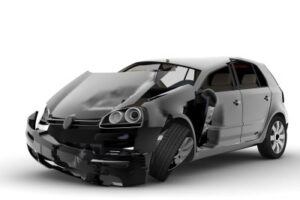
Car Accessories
Your car will likely be the greatest financial loss, especially if it was declared a total loss. The loss of your car is covered under the auto damage portion of the claim. It includes damage to any items that are considered part of the car, such as your car stereo. Non-auto property damage is listed separately, and it can include car accessories like a GPS system, spare tire, or child safety seat. Know that child safety experts recommend replacing child safety seats after each moderate to severe accident—even if the seat doesn’t show signs of damage.
Wearable Items
The items you’re wearing at the time of the car accident can be surprisingly valuable. Even if you weren’t wearing designer clothes that sustained damage, you may have been wearing eyeglasses, a hearing aid, or dentures. If you need to repair or replace these items, you can request compensation for them.
Personal Belongings
Anything you tossed on the passenger seat or backseat can become airborne during a car accident. Since personal belongings like laptops weren’t designed to survive a short flight, they’ve likely sustained damage. Before filing your claim, carefully check for damage to items like cameras and cellphones.
Documented Evidence
Your lawyer will ask you for evidence of the damage. Photos will typically suffice. If the damage isn’t visibly apparent, you may need to take the item to an expert. For example, a computer repair specialist could provide a notarized statement to prove that your laptop is no longer functional. Items that are difficult to put a price on may need to be professionally appraised.
-
What Is the Positional-Risk Test for Workers’ Comp?
States establish their own workers’ comp laws . Workers in Baltimore, Maryland can file a workers’ compensation claim if they meet the criteria of the positional-risk test. This test determines whether an injury was directly caused by the job. In short, it’s a “but for” test, meaning that an injury qualifies if the worker would not have received the injury, but for the obligations and conditions of employment. This means that a person could receive workers’ comp benefits even if the injury was sustained during incidental activities, such as a lunch break.
In the past, Maryland courts have used the positional-risk test to define generous boundaries for workers’ compensation coverage. One notable case involved the death of a worker who had borrowed his employer’s welding equipment to make some non-work-related auto repairs. The court determined that the family was entitled to benefits because, had it not been for the worker’s employment, he wouldn’t have had access to the malfunctioning equipment that caused his death by electrocution.
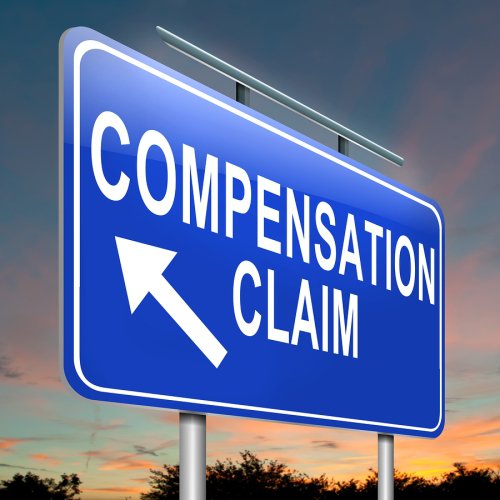
-
Can I File a Wrongful Death Claim After Someone Runs Over My Dog?
Pets are regarded as property in the eyes of the law. For years, pet parents have been distressed to find that their options for legal recourse do not sufficiently reflect the significant, long-lasting emotional trauma of losing a pet to someone else’s negligence. Some states have slowly begun to change this approach, including Maryland. If you live in Baltimore, you can talk to an accident attorney to find out if you could file a lawsuit against the person who caused the car accident that killed your dog.

Consulting an Injury Lawyer
The sudden loss of a beloved member of the family can interfere with your clarity of thought. As difficult as it is to discuss the event, you do need to see a lawyer promptly. He or she will review your case and evaluate the value of the claim. Depending on the circumstances, you may wish to settle the case out of court. Your attorney can contact the negligent driver or the insurance carrier to explain the monetary value of your loss, and offer to settle the case instead of filing a lawsuit. If compensation isn’t forthcoming, you can take legal action.
Filing a Lawsuit
You can only sue for wrongful death if a human was killed. However, you can still file a civil lawsuit against the person who killed your pet. Your lawyer will present evidence to prove that the defendant’s negligence directly caused the car accident that killed your dog. Once the defendant is served with the paperwork, it’s quite possible that he or she will be more willing to settle the case out of court.
Assessing Damages
A key component of any lawsuit is the assessment of damages. In many jurisdictions, dog owners are limited in the amount of compensation they can recover. A court will typically award the amount the dog would cost, plus related veterinary bills. The following factors may play a role in determining the dog’s value.
- Purchase price
- Breed
- Training
- Age
- Health (prior to the car accident)
- Special characteristics of value
- Usefulness
If the dog was a champion show dog, a service dog, or specially trained law enforcement dog, the value would increase. Recently, Maryland courts have ruled in favor of allowing bereaved puppy parents to secure compensation for their emotional distress. Claims of mental anguish can be substantiated by records that show you sought mental health counseling in the wake of the death.
-
Horseplay in the Workplace: A Look at Workers’ Comp
Employees in Baltimore can rely on workers’ comp law to protect them in the event of a job-related injury or illness. However, there are a few gray areas, such as injuries that result from horseplay in the workplace. Because of the risk that your claim would be denied, you should contact a workers’ comp lawyer as soon as possible after becoming injured in a horseplay-related incident.
Watch this video to hear more about applicable workers’ comp issues. You’ll learn that multiple factors may be considered before denying or approving the claim, such as the nature of the injuries, the role of the injured worker in the incident, and the history and culture of the workplace. If your workers’ comp claim is denied based on willful misconduct, your attorney may file an appeal. Another alternative is filing a personal injury lawsuit against the other employees.
RECENT POSTS
categories
- Uncategorized
- Worker's Compensation
- Attorney Fees
- Auto Accident Injury Whiplash
- Attorney Review
- Personal Injury
- Social Security Disability
- DUI
- Workplace Injuries
- Auto Accident
- Workers Compensation Claims
- Permanent Disability
- Infographic
- Drunk Driving
- Wrongful Death
- Works in Maryland
- Uninsured Motorists
- Motorcycle Crashes
